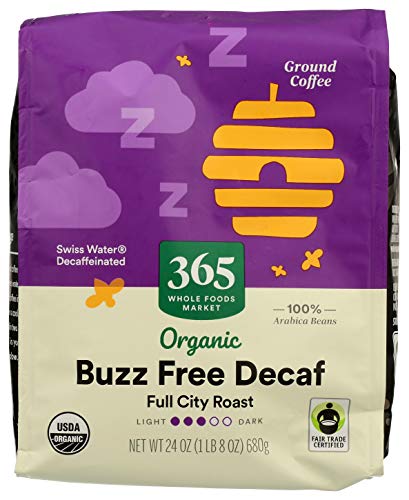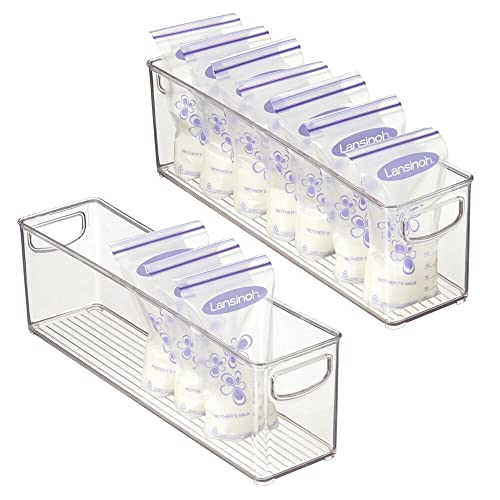Caffeine is a drug that is well-known for its energizing effects. It’s also a new mom’s best friend. Caffeine is found in coffee, tea, cola and other drinks.
Unfortunately, caffeine can pass through the placenta into your breast milk. Studies estimate less than 1% of the caffeine you ingest end up in your breast milk with peak levels occuring about 60 minutes after having caffeine. To reduce the amount of caffeine your baby gets, drink your coffee immediately before breastfeeding or right after a feed.
Let’s take a deep dive:
- How long does caffeine stay in breast milk?
- What are the risks of caffeinated drinks to breastfeeding infants?
- How does caffeine affect breastfeeding mothers?
- How much caffeine can a breastfeeding mother safely drink?
- How long does it take for caffeine to get out of breastmilk?
- How can I get caffeine out of my breast milk?
- Can you pump and dump caffeine?
- When should I pump and dump after coffee?
- Does caffeine stay in pumped breast milk?
- To wrap up
How long does caffeine stay in breast milk?
Caffeine is a drug that is found in many different beverages and foods. When ingested, it can be detectable in saliva and breast milk within one hour. Caffeine levels in breast milk are at its highest up to 3 hours after ingestion.
It varies somewhat depending on your individual metabolism but generally, the half-life of caffeine is about 6 hours. This means caffeine can be found in your breast milk for up to 12 hours after the last drink.
If you’re breastfeeding, enjoy your coffee right after feeding your baby so that the caffeine has time to peak and wane in time for the next feed.
What are the risks of caffeinated drinks to breastfeeding infants?
Caffeine is a drug that can have an effect on the brain and body of infants. Every infant is different in terms of how they’ll react to consumption of caffeine by their mother. However, drinking a light or moderate amount of caffeine doesn’t pose any risks to you or your baby. Moderation is key when it comes to most foods and drinks while breastfeeding, including caffeinated beverages like coffee and tea.
When caffeine pass into your breast milk and is consumed by your baby, it can cause the infant to experience some of these symptoms:
- overstimulated
- trouble sleeping
- poor feeding
- agitated
- restless
- colic-like pain
- jittery
- anxious
- general fussiness
Preterm infants and newborns take an unbelievably long time (50-100 hours) to process caffeine. However, once they are a bit bigger, it takes a baby only about 3-7 hours.
If you desperately want the taste of coffee but don’t want to risk your infant getting coffee toxic, try chicory root:
How does caffeine affect breastfeeding mothers?
In late pregnancy, our caffeine metabolism slows down significantly but this goes back to what our baseline levels within 1 week postpartum. Like sugar, caffeine can give us a boost of energy and a bit of a ‘high’. Sadly, this is inevitably followed by a ‘crash’ and the craving for more caffeine to feel better again.
Too much caffeine can cause you to experience some of these symptoms:
- fast heart rate (palpitations)
- restlessness
- a feeling of panic
- diarrhoea
- abdominal pain
- increased thirst
- increased urination
- headaches
- dizziness
- insomnia
The negative effects of caffeine is a accentuated when we are exhausted. While caffeine can help us get through the day, it can also be problematic. It’s important for you to be aware of the risks involved and take note of how much caffeine you’re consuming each day.
Coffee and tea are not recommended but a moderate amount is acceptable. However, avoid drinking energy drinks while breastfeeding as they not only contain much higher levels of caffeine and sugar, they can also have other stimulants like guarana, taurine and L-carnitine.
More research is needed on energy drinks but I believe they are toxic and should be banned. Until we have more information, it’s best to play it safe and avoid these drinks altogether.
How much caffeine can a breastfeeding mother safely drink?
When it comes to caffeine and breastfeeding, there is no easy answer. The amount of caffeine that is safe for a nursing mother to drink will vary depending on a few factors, such as the infant’s age and how quickly they metabolize the caffeine.
That being said, the generally accepted “safe” amount of caffeine while breastfeeding is around 200 to 300 mg per day. This equates to 3 cups of instant coffee (1 teaspoon/cup) or 2 cups of single shot espressos.
It’s important to remember that this number may vary depending on your specific situation, so be sure to check with a medical professional if you’re unsure about what’s safe for you.
Also, be aware of the caffeine content in everything you eat or drink. Many common foods and beverages contain high levels of caffeine so be sure to check labels carefully!
If you are planning to drink decaf, make sure it’s organic so you know the caffeine wasn’t filtered out with chemicals:
How long does it take for caffeine to get out of breastmilk?
When consumed, caffeine crosses into the breast milk and peaks within one hour. Only 1% of the amount of caffeine consumed by you ends up in your breast milk. If you’re only drinking 2-3 cups of coffee a day, this amount is so small that it’s negligible to your baby’s intake.
However, be aware that caffeine typically lasts for between three to seven hours before it gets out of a healthy adult. After one cup of coffee, you can still find traces of caffeine in your bloodstream 12 hours later but this is usually gone from breastmilk within 24 hours.
If you drink 2 to 3 cups of coffee daily, this means that there is a small amount of caffeine in your breast milk most of the time during the day. Fret not, if you drink your coffee right before a feed (or just after), by the time your next feed comes round in 2 to 3 hours, the amount of caffeine in your breast milk is within acceptable range for the average infant.
How can I get caffeine out of my breast milk?
Some mothers find that ingesting a moderate amount of caffeine doesn’t have an impact on their baby, while others find that their infants are a little bit sensitive to the effects of caffeine.
Caffeine can build up in preterm and newborns because it takes them so long to process it. Too much caffeine can make a baby irritable and restless.
I wish there was a ‘caffeine magnet’ you can hold over your breast to suck all the caffeine out. Unfortunately, there is no way to take caffeine out of your breast milk. You need to wait until the caffeine you ingested naturally reduces in your blood stream and breast milk.
If you’re worried about the amount of caffeine in your breast milk, the best thing to do is wait for it to naturally metabolize out of your milk by having a cup of coffee right before feeding your baby or waiting until after you’ve finished feeding baby if they go more than 2 hours between feedings.
If you’ve had way too much coffee, you might decide to pump and dump.
Can you pump and dump caffeine?
There is a lot of confusion about pumping and dumping and whether or not it’s effective for getting rid of caffeine. The truth is, pumping and dumping doesn’t actually do anything to remove substances from your milk. It’s literally a ‘pump and dump’ when you want to skip a feed but don’t want your supply to be affected.
You feed your baby from a ‘clean milk stash‘, pump your breast milk and throw it away. Then you breastfeed as usual at the next feeding time.
When should I pump and dump after coffee?
The caffeine levels in your breast milk peak about 1 to 2 hours after you’ve had a cup of coffee. So if you want to avoid giving your little one too much caffeine, try pumping and dumping one to two hours after drinking coffee.
Does caffeine stay in pumped breast milk?
If you’re thinking of pumping and keeping your precious breat milk in the freezer so the caffeine will magically dissipate from it, think again. Caffeine and other substances stay in pumped breast milk forever. If you think your breast milk contains too much caffeine for your infant to drink from the breast, it’s still too much when you take it out of the freezer in 3 weeks.
To wrap up
As long as you’re drinking 2-3 cups of coffee a day, you should have no problems breastfeeding safely. If you’re worried, try decaffeinated coffee or find your zest elsewhere.
- 19 Spring Birthday Party Ideas for Adults - September 19, 2024
- How can you make your birthday party special? - September 19, 2024
- How To Plan A Unicorn Birthday Party - September 19, 2024

 Check it out on Amazon
Check it out on Amazon Check it out on Amazon
Check it out on Amazon Check it out on Amazon
Check it out on Amazon
Pingback: Top 10 opportunities for moms to find some 'me time' when breastfeeding - The Sensual Mom
Pingback: 12 ways to rediscover your zest for life